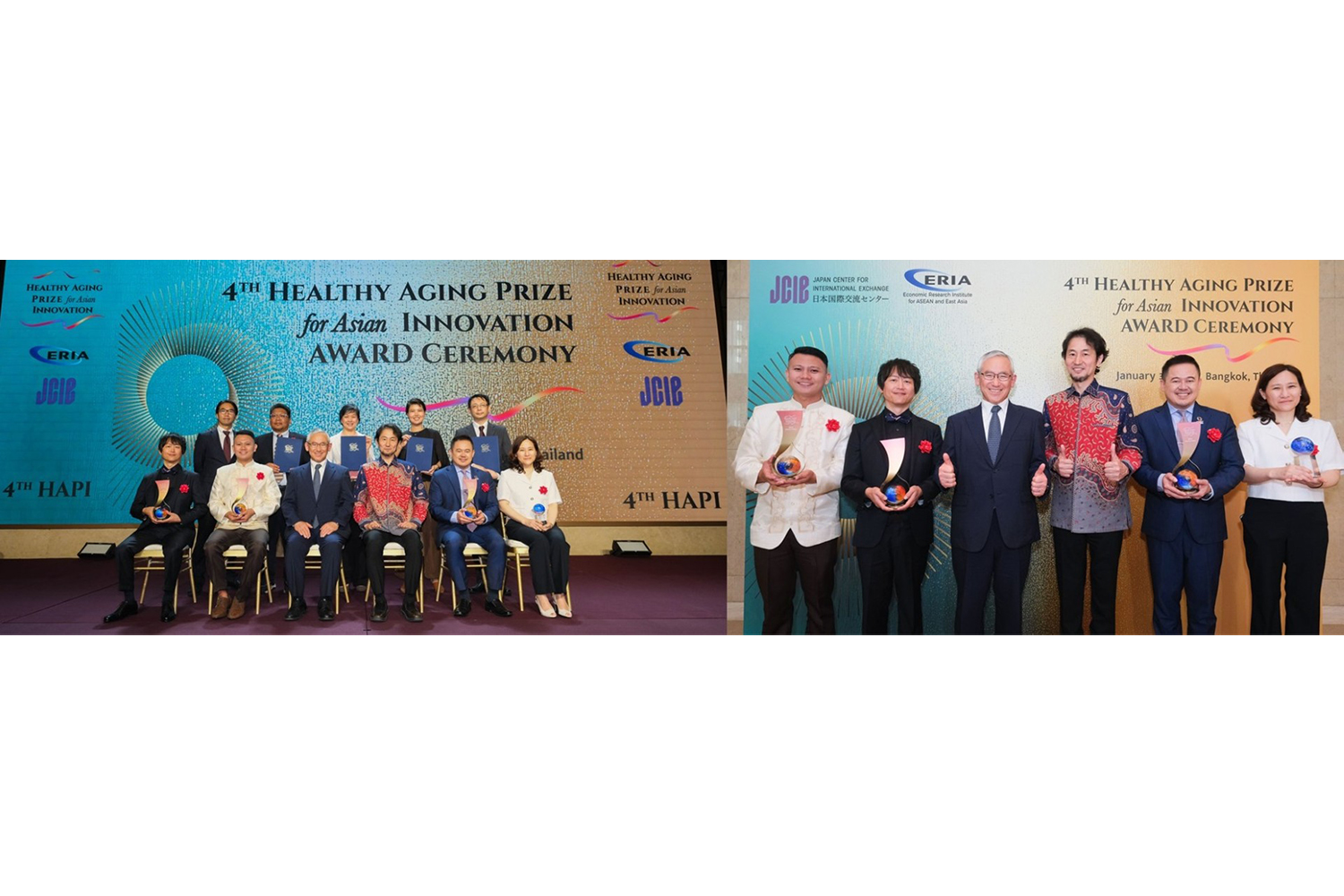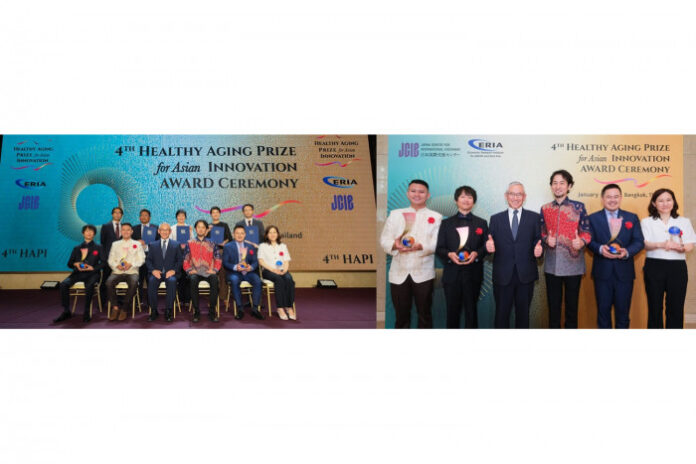HAPI awards highlight creative approaches to aging challenges across Asia.
PUBLISHED : 11 Feb 2025 at 17:20

Across Southeast and East Asia, a demographic shift is transforming societies as populations age at an unprecedented pace. The Healthy Aging Prize for Asian Innovation (HAPI) is shining a spotlight on breakthrough initiatives that address the challenges of aging through innovation. With awards in three categories—Technology & Innovation, Community-Based Initiatives, and Supporting Self-Reliance—the HAPI initiative is a collaboration between the Japan Center for International Exchange (JCIE) and the Economic Research Institute for ASEAN and East Asia (ERIA) under Japan’s Asia Health and Wellbeing Initiative (AHWIN).
Reimagining Technology for New Solutions
“Innovation often comes from adapting simple technologies creatively,” explains Isao Kano, President and CEO of JCIE. ORANGE LINKS, the 3rd HAPI Grand Prize winner, exemplifies this approach. They developed QR code nail stickers for people with dementia—an affordable solution that helps reconnect those who wander off with their families or care facilities. This adaptation of existing technology underscores how thoughtful innovation can solve real-world problems.

Island Healthcare Innovation in Japan
On Osaki Shimojima Island, where aging is a significant challenge, Nurse & Craft, another HAPI Grand Prize winner, is revolutionising rural healthcare. Their initiative, “Home Nursing to Regenerate the Town,” blends home-visit nursing, telemedicine, and community engagement to combat loneliness while delivering quality care. “Loneliness is the most serious issue on the island,” says Hiroyuki Fukasawa, Representative Director of Nurse & Craft. “We foster social interaction by involving local seniors in preparing meals for healthcare professionals, turning routine activities into meaningful experiences.”
Cycling for Elderly Care in the Philippines
In the Philippines, Padyarescue Inc.’s Go Bike Project mobilises over 1,200 young volunteers who cycle through disaster-prone areas to monitor the health of older residents. This grassroots initiative has served more than 37,000 people. “Our success lies in community support,” explains Edren Llanillo, Executive Director of Padyarescue. “Youth leaders and educators have embraced the project, turning young volunteers into future leaders who secure funding to sustain the programme.”
Empowering Thailand’s Seniors with Digital Skills
In Thailand, Chiang Mai University’s School of Lifelong Education is preparing seniors for the digital economy. Its MEDEE programme, another HAPI Grand Prize winner, combines online learning with hands-on training to equip seniors with tech skills and entrepreneurial knowledge.
“The challenge of an aging society affects everyone,” says Prof. Tim Nuttee Suree, Associate Professor at Chiang Mai University. “By engaging directly with seniors, we developed tailored courses that meet their needs, empowering them to thrive in a digital world.”

A Vision for Aging Happy Societies
From Japan’s island healthcare model to the Philippines’ cycling caregivers and Thailand’s tech-savvy seniors, the HAPI award recipients offer inspiring examples of innovation in aging. These initiatives combine technology, community engagement, and intergenerational collaboration to address the complex needs of aging societies.
As Mr. Kano reflects on the future of aging in Asia, he offers an optimistic perspective: “It’s not just about aging societies—it’s about creating aging happy societies.”
For more details, visit:

